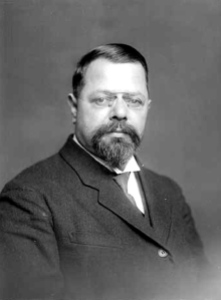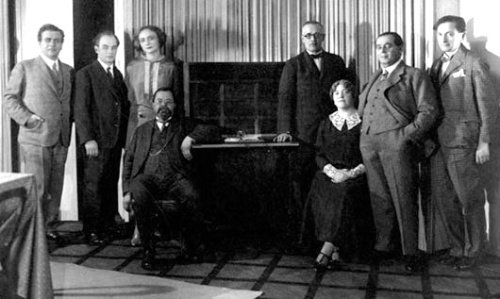The opera Vina (Guilt) by the Czech composer Otakar Zich (above, 1879–1934) was one of the most highly anticipated—and hotly debated—musical premieres at Prague’s National Theatre in 1922.
Composed between 1911 and 1915, Vina’s three-act score reflects many trends of its time, including a post-Wagnerian motivic web, lush Straussian orchestration, and quasi-tonal harmonic content derived mostly from a linear, contrapuntal texture.
Zich compiled the prose libretto from Jaroslav Hilbert’s 1896 play of the same name, an Ibsenesque parlor tragedy that retained its popularity for over a quarter-century. His compositional technique reaches its height during the heroine’s “letter without words”, a scene accompanied by a brilliant polytonal fugue for full orchestra.
Despite its many accomplishments, Zich’s Vina met with critical controversy after its premiere, provoking opposing forces to support or oppose musical modernism, which with this opera had firmly taken root in the Czech lands.
A new critical edition (Middleton: A-R Editions, 2014) increases Vina’s availability, enhancing the possibility of future performances of this historic work.
Below, Josef František Munclingr, Otakar Zich, Marie Veselá, Otakar Ostrčil, Emil Pollert, Marta Krásová, Jan Konstantin, and Miloslav Jeník preparing for the premiere of Vina.




